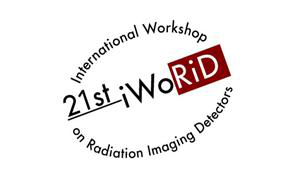Speaker
Description
The heavy-ion experiments at the Heavy Ion Research Facility in Lanzhou (HIRFL) and the future High Intensity Heavy-Ion Accelerator Facility (HIAF) in China drives the development of high-performance particle imaging detectors. Due to the high spatial resolution, fast timing response and low noise level, a Monolithic Active Pixel Sensor (MAPS) is being developed with 130nm CMOS process for the prototype detectors. To reduce the data volume from the MAPS based detectors, a centroid finder that is able to calculate the geometric centroid of the region of the energy deposition in a quick manner has been designed. The centroid calculation is realized by distance screening among the coordinates of the pixels in the fired region. With the fast-stop scheme in the algorithm, the centroid can be figured out without screening the whole region, which reduces the iterations in the calculation process. Performance study with the data from heavy-ion experiments in HIRFL proves that the centroid finder is able to accurately find the centroid of the fired region. In addition, it reduces the data volume from the MAPS by approximately one order of magnitude. This paper will discuss the design, implementation and performance study of the centroid finder.




